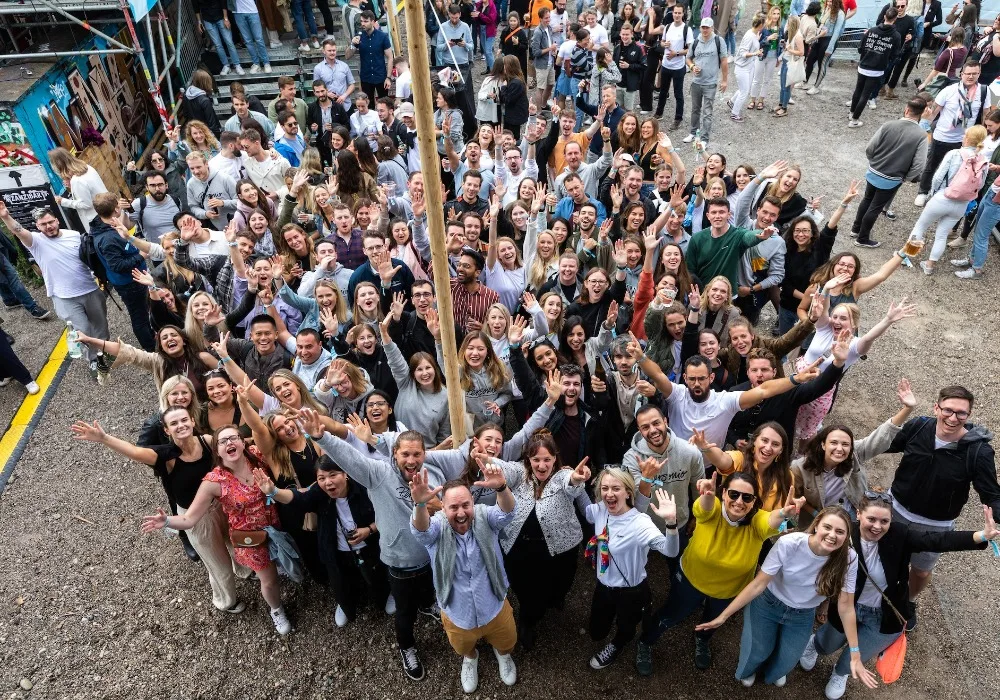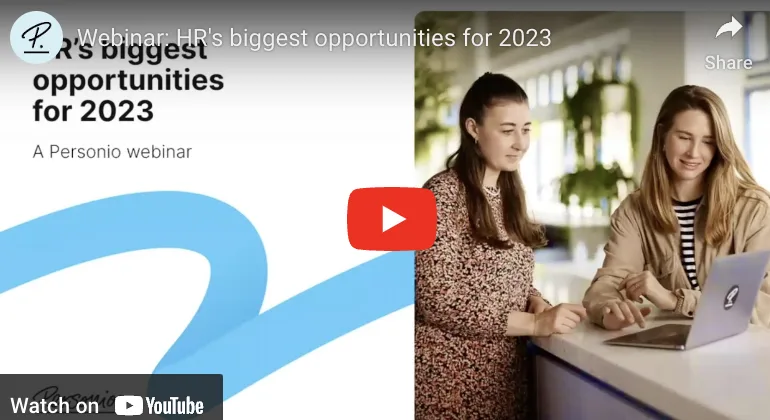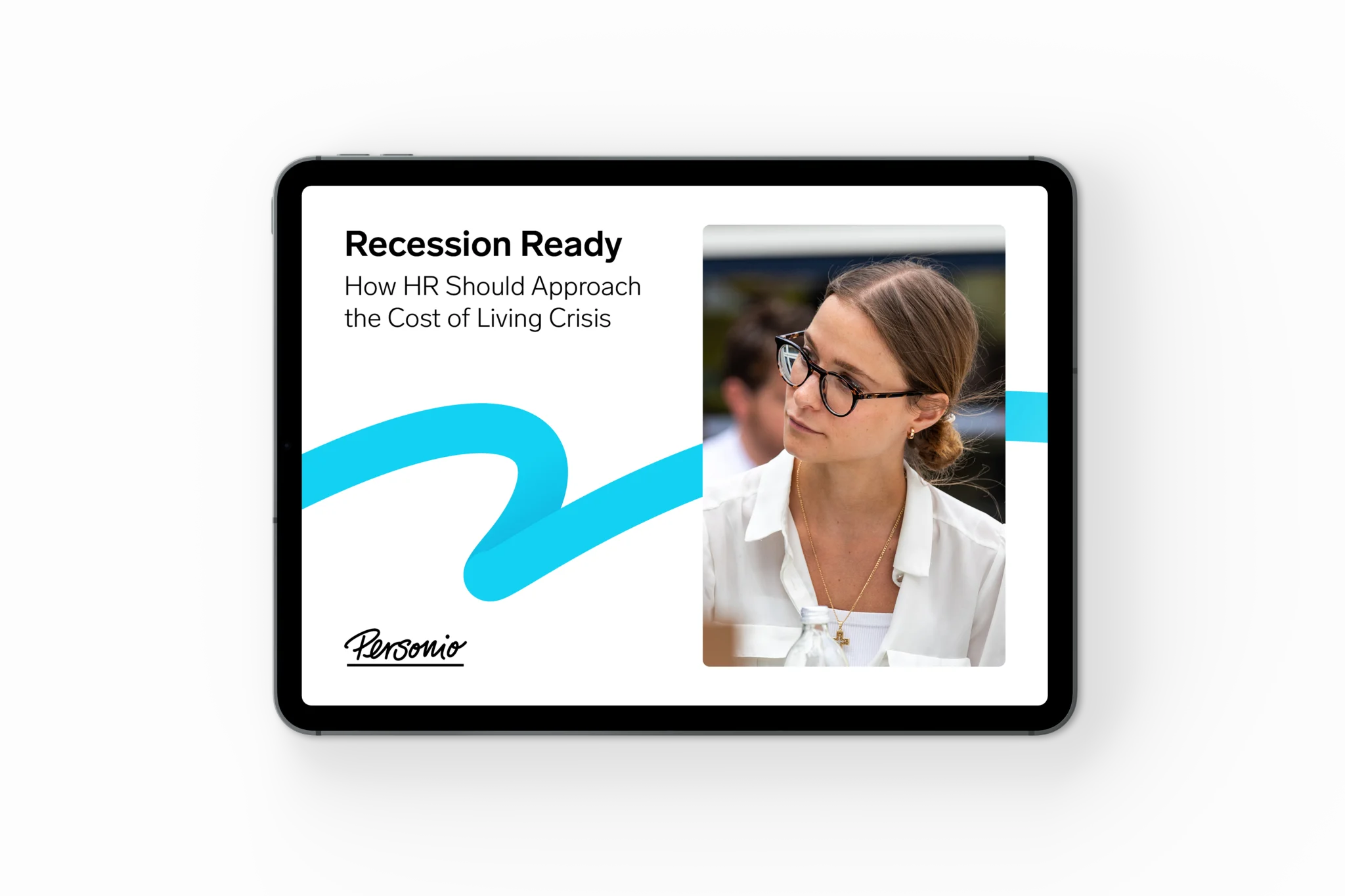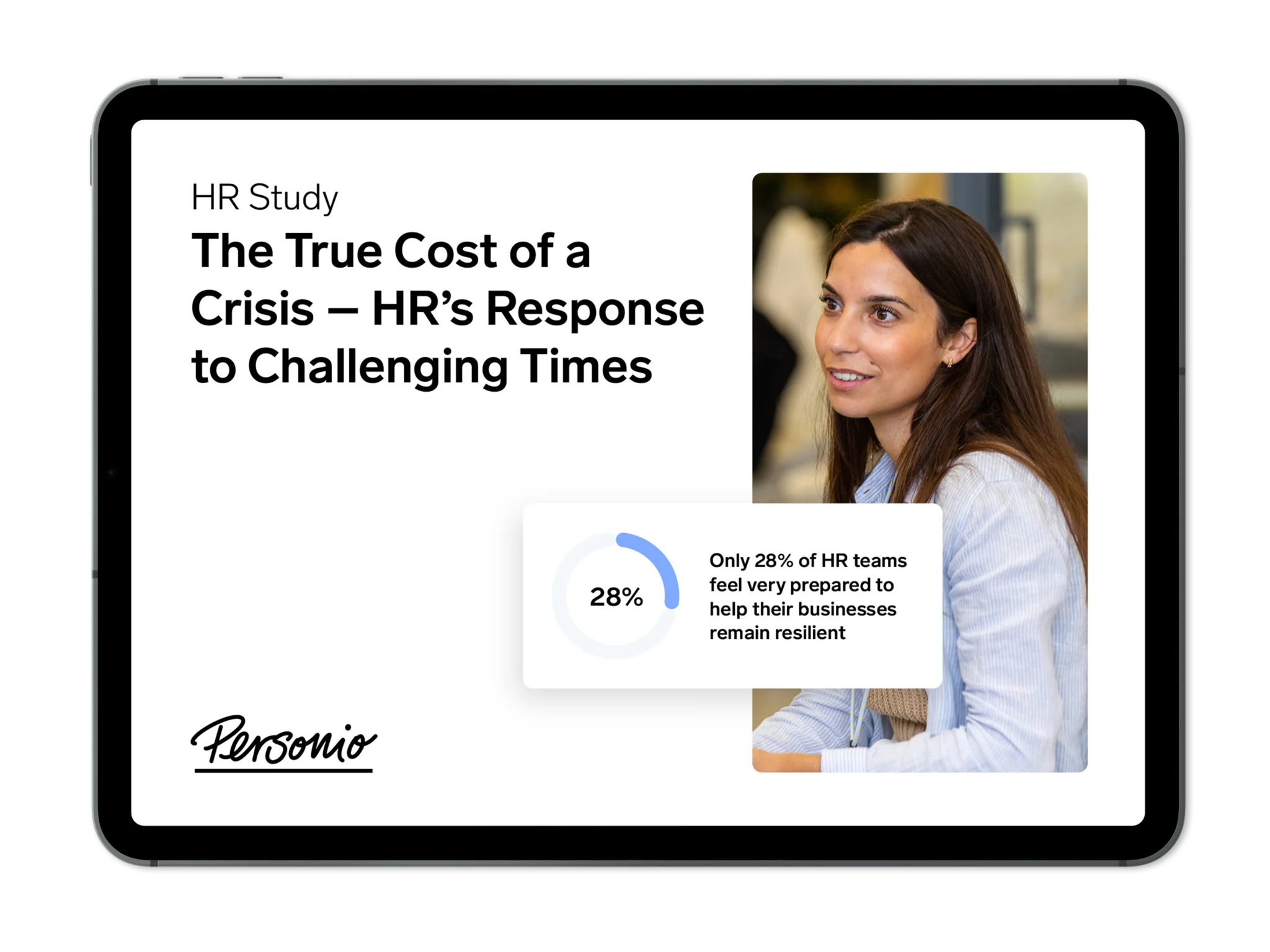16. November 2022
5 HR Challenges for 2023 and How To Prepare Your People Teams

With the current macroeconomic environment creating its own HR challenges, 2023 will be the year of ‘focusing on fundamentals’. Or, as one recent report put it, companies will be smarter about maximising their budgets and place greater focus on results and performance.
So, how can your HR teams best prepare for what is likely to be a challenging year for the people function? Below, our Chief People Officer Ross Seychell will outline some clear strategies you can implement to ensure your teams are set up for success for 2023 and beyond.
Ross will also share why he thinks next year could bring some unexpected opportunities for employees, HR departments and businesses at large. What is your top priority for 2023? How are you preparing? Join the conversation on LinkedIn.
Short on time? Watch these insights at our webinar:
HR's Biggest Opportunities for 2023

We need your consent to load this service!
This content is not permitted to load due to trackers that are not disclosed to the visitor.
What Will Be the Biggest HR Challenges in 2023?
HR Challenge 1: Quiet Quitting
The big one I think we hear a lot is ‘quiet quitting’. This is when people are doing the bare minimum their work requires. They're disengaged with their organisation and unhappy in their role but the job market has changed and maybe there aren’t as many opportunities. We will need to address this by listening to employees' frustrations and seeing what can be done such as balancing workloads and enforcing healthier work-life boundaries.
HR Challenge 2: Organisational Effectiveness
Company and team productivity along with individual performance will be a bigger focus this year. To target this, we’ll need to look at the broader changes we can make in-organisation to minimise inefficiencies and barriers to productivity. We will also need to drive greater prioritisation to ensure teams are set up for success.
HR Challenge 3: Hiring High-Quality Talent
The third one I see is how to keep the bar high when there’s going to be a lot more talent in the market. How do you make sure that you don’t flood your organisation with the quality of talent you don’t need and you keep your bar high?
HR Challenge 4: Growing Your People
HR teams will need to ensure that they develop their people more this year as there are not likely to be as many chances for promotion or career progression as in years gone by. How do you make personal growth more tangible without a title change?
HR Challenge 5: Automation and Data
What underpins all of this is the ability to run your HR function smarter through tooling and automation. Do you even have access to the data you need to truly ‘know’ your organisation and make decisions with confidence?
For even the most seasoned HR professional, 2023 looks set to be a year full of HR challenges.
How Can We Approach Some of These HR Challenges?
1. Laser-Focus on Your Goals and Priorities
HR has always been so crucial – we’ve seen that especially through the pandemic. One of the big things in 2023 will be how to best support employees through this time while avoiding burnout. Embrace ruthless prioritisation. More priorities doesn't mean better priorities and you may risk failing at all of them. Have critical priorities to rally around, communicate clearly and cut out the noise.
Also make sure that your business goals are translated into department and team goals so that it’s easy for people to know what’s expected of them. Check that priorities and goals are not too stretched and really focus on what’s most important so that people don’t feel like they have to really overwork if they’re scared of job loss.
2. Foster Company-Wide Productivity
Given the financial outlook, we definitely expect to see a bigger focus on productivity within an organisation, not just for company and team productivity but for individual performance and engagement. HR are in a prime position to help with this. We will need to assess how happy and healthy our teams are given the recent uncertainties and any organisational inefficiencies.
We will also need to look at where you can make changes in the organisation to work faster, work smarter and reduce overhead. To do this, think about installing organisation-wide meeting-free days, a centralised HR ticketing system and an accessible employee resource centre to share FAQs so that your teams don’t spend their days answering employee queries.
3. Focus on the Metrics That Matter
Take a look at elements such as headcount and labour costs, org design ratios, revenue per FTE, incentive plan structure and regretted attrition. Review this data in order to understand the health of the organisation and where there are opportunities to be more efficient. Definitely partner with finance to look at revenue and costs and see where they feel there’s an opportunity – discuss these insights with finance and your CEO.
Use the time now to really think about how effectively and efficiently you are running your HR team by assessing metrics such as cost per hire, percentage of HR vs company headcount, time to resolve employee requests and ratio of HR partners/managers to leads. Ensure that you have access to the insights you need to understand the trends that are happening within your people function.
4. Lead With Authenticity and Openness
During times of uncertainty, employee engagement can decline. One way to boost it is to be transparent. Talk with leaders about how your teams are doing. Use data and facts to build a deeper understanding of business performance and outlook so that every employee is informed. Have regular and open communication with your employees. Sharing that certain elements are unknown can also help in both being very open as a leader and overall wellbeing.
Ask for feedback – it’s really important to know how you’re doing and get feedback as a leader. We need to be able to lead in uncertain times and be OK with not having all the answers. We need to be comfortable showing vulnerability and giving comfort to teams, so that we can support and guide them. Ensure your leaders know that when things come up, they can lead on the broader leadership team.
Gartner::
You Need to be a 'Human-Centric' Leader
Gartner shares that employees now expect leaders to be 'human-centric'. This involves being:
Authentic: Act with purpose and enable true self-expression.
Empathetic: Show genuine care and respect for wellbeing.
Adaptive: Enable flexibility that fits the unique needs of teams.
5. Lean on Your HR Community
I found that through COVID, my network really strengthened and grew and I got to know a lot of people that maybe I wouldn't have in the past through virtual networks (and now in-person networks). That’s really helped me think about where there are opportunities and where I can learn what other companies are doing.
Reach out to others who have been through similar economic downturns and learn how best to steer your organisation through it. Now that we are in a world where we can be together, build a network you can connect with. There’s definitely going to be a lot of resilience needed. You will need to figure out how to reset teams when you have had to make tough decisions.
Not sure where to start? Check out our HR Dinners where you can meet other HR peers and share experiences and expertise over food in cities across the UK, Ireland and Europe.
Finally… Don’t Forget the Positives of HR Challenges
Don’t overburden your teams with lots of new initiatives. HR should leave their plans very adaptable next year because there are things that we just don’t know that may or may not happen and how we should respond to them. Focus back on what your business needs from you, organisational effectiveness and productivity, performance improvement and growing your talent internally when there’s not a lot of career movement.
I personally have grown faster during times of adversity, having to hustle and quickly develop new skills. Many great organisations and new companies have been born out of difficult situations such as the early noughties crash, the financial crisis and the pandemic. Through challenge sometimes comes new life, new beginnings and new initiatives.

About Ross Seychell
As a business leader with 20 years of HR experience, I have a strong passion for how a company’s most important asset – their people and culture – enables them to unlock and achieve their mission. After building out workplace strategies at high-growth companies such as Wise and King, I joined Personio as Chief People Officer to help us become the leading HR platform and tech employer in Europe.


